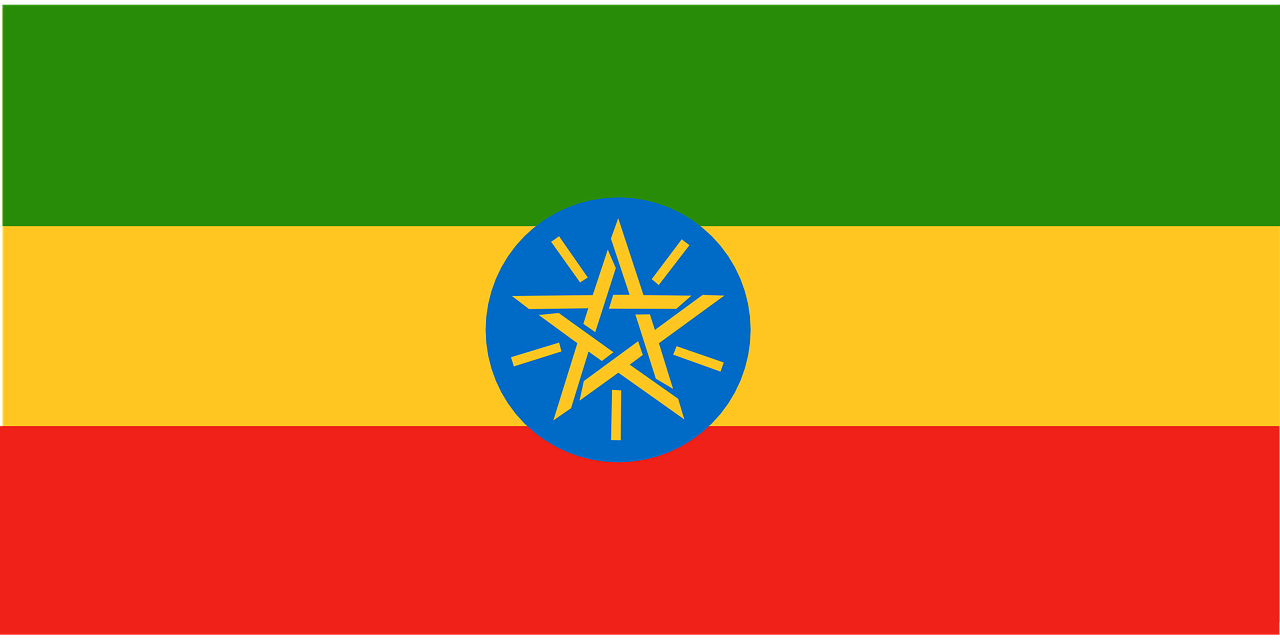Forms of Investment in Ethiopia
| Investment Proclamation No. 1180/2020 | DOWNLOAD |
| The New Commercial Code of Ethiopia | DOWNLOAD |
According to Proclamation No 1180/2020, investment in Ethiopia may take place in one of the following forms:
I. Sole Proprietorship
Sole proprietorship is business in which only one individual owns all the assets, and operates in his/her personal capacity. In this form of enterprise, the owner is also personally liable for all debts of the business operation, i.e. that creditors can recover their debts from the personal property of the owner other than the property of his/her business.
The primarily advantage of this form of enterprise is that it is owned and managed by one person. The sole proprietor can freely make decisions regarding his/her business as he/she deems fit contrary to the other forms of enterprises such as business organizations. In business organizations (except for one-person company), a person cannot make such decision as he/she deems fit as he/she is required to consider the interest of his/her co-partner(s). However, in sole proprietorship, the sole proprietor can make decisions by looking after his/her own interest without any pre-requisite that may arise from the existence of co-partner(s).
However, it has to be noted that the above feature also gives rise to the primary disadvantage of sole proprietorship which is the personal liability of the sole proprietor. In sole proprietorship, the owner is personally liable for any debts or other claims that arise from the operation of the business. This means that creditors (or others) may claim against the personal property of the sole proprietor for any debts or claims which might not be recovered from the property of business. Indeed, this is also the feature of some of the forms of enterprises, as it will be discussed below.
II. Business Organization
Business organizations are associations established through a memorandum of association by persons who intend to cooperate to bring together contributions for the purpose of undertaking an economic activity and of participating in the profits arising out thereof. All forms of business organizations have certain common features, which include:
- All business organizations should be registered in accordance with the applicable laws.
- All are deemed to be a legal person except joint venture.
- The establishment should be made in writing except joint venture.
- All should be made public except joint venture.
- All acquire rights and incur liabilities, as well as act in legal proceedings through its agents in accordance with the provisions relating to agency.
The following types or forms of business organizations are recognized under the new Commercial Code of Ethiopia:
- General partnership;
- Limited partnership;
- Limited liability partnership;
- Joint venture;
- Share company;
- Private limited company; and
- One-person company.
A. Partnership
General Partnership
A general partnership is a business organization whereby each partner is jointly and severally liable with the partnership for the obligations of the partnership. In this form of business organization, the partners have unlimited liability to creditors of the partnership. In other words, creditors of the partnership may recover their debts from the personal property of the partners.
This form of business organizations has among others the following basic features:
- Contributions may be made in the form of cash, movable or immovable property, skill, trademark, goodwill, patent, lease right, usufruct or any other form.
- Profit and loss are distributed equally amongst the partners unless they have explicitly agreed otherwise.
- A partner who seeks to transfer shares is required to secure the consent of all partners unless there is a contrary provision in the memorandum of association
- The partnership is managed by one or more managers who may or may not be partners.
Limited Partnership
Limited partnership comprises partners with different types of liability: general partners and limited partners. General partners are those who are fully jointly and severally liable with the partnership for the obligations of the latter. Conversely, limited partners are liable to the obligations of the partnership only to the extent of their pledged contributions. However, a limited partner may be considered as a general partner on certain circumstances. For instance, if he/she insists his/her name to be included in the firm name, he/she is jointly and severally liable with the partnership as though he/she were a general manager.
Limited Liability Partnership
Limited liability partnership is a new form of business organization recognized under the new Commercial Code.
A limited liability partnership is a business organization formed by two or more persons to render professional services and services complementary thereto. In this context, “professional service” means a service provided in line with a professional license granted by an appropriate organ and “complementary service” means a service that falls under one or more professions and is related and necessary to provide the professional service. This means that the person seeking to establish or join this form of partnership should obtain a professional license from the appropriate government organ.
In this form of business organizations, the partners are only limited to the extent of their contributions. However, some circumstances may entail the joint and several liability of a partner. For instance, if a partner intentionally or fraudulently or negligently commits fault or causes damage, he/she will be jointly and severally liable with the partnership.
Further, the partnership has a legal personality distinct from its partners. Unlike the above forms of partnerships, this partnership cannot be dissolved by the death, bankruptcy, departure of a partner from the partnership, or any other change in the status of the partners.
B. Joint Venture
Joint venture is a business organization without legal personality established by two or more persons through a memorandum of association. This form of partnership is usually concluded to undertake a specific project or to foster a good relationship among the partners for future business relations.
Joint venture has among others the following basic feature:
- The registration formalities required of other business organizations is not applicable;
- It shouldn’t be made public meaning that where a joint venture is made known to third parties, it is regarded, insofar as such parties are concerned, as a general partnership;
- Every partner owns his/her contribution as long as there is no contrary agreement;
- Transfer of shares is effected with the consent of all the partners unless it’s otherwise agreed;
- If no manager is appointed, all the partners have the status of manager; and
- Partners share the profits and losses that arise from the undertaking.
C. Companies
Private Limited Company (PLC)
A private limited company is a business organization whose capital is fully paid-up in advance. Divided up into shares and members are not liable for the debts and liabilities of the company as long as they have paid up their contributions.
The following are some of the basic features of a private limited company:
- The minimum capital requirement to establish a private limited company is 15,000 Birr.
- The amount of a share shall not be less than 100 Ethiopian dollars.
- Cannot issue transferable securities, such as shares, unlike share companies;
- Shares can be freely transferred among shareholders but outside share transfer is slightly restricted; and
- Is managed by one or more managers.
Share Company
A share company is a company whose capital is fixed in advance and divided up into shares and whose liabilities are met only by the assets of the company.
Some Requirements to form a share company include:
- The capital shall not be less than 50,000 Ethiopian dollars. The amount of the par value of each share shall not be less than 100 (hundred) Ethiopian dollars.
- A company may not be established by less than five members.
- The capital must be fully subscribed;
- At least one quarter of the par value of the shares should be paid up and deposited in a bank, in the name and to the account of the company.
- Contributions in kind allowed but upon satisfaction of a valuation procedure.
- Meeting of subscribers to verify that the requirements relating to the formation of the company have been complied with, to draw up the final text of the memorandum and articles of association and to approve contributions in kind, if any, and the share in the profits allocated to the founders; and
- Registration and authentication of the memorandum of association and article of associations, as well as the prospectus.
- Some basic features of a share company include:
- It is managed by various layers within the company: shareholder’s meetings, board of directors, chairperson, general manager, and auditors.
- Shares can be transferred freely without the need to obtain the consent of other shareholders.
- New shares and debentures can be issued from time to time.
One-person Company
A one-person company is a new form of business organization that is recognized under the new Commercial Code. As it is name denotes, this form of Business Company is owned by a single person. The company has a legal personality separate and distinct from that of the member. As such, the owner is not personally liable to debts incurred by the company.
III. Public Enterprises
- Article 2/1 of Proclamation 25/1992: public enterprise is a wholly state owned public enterprise carries on for gain manufacturing, distribution, service rendering or other economic and related activities.
- Article 6 of Proclamation Number 25/1992-A public enterprise is established by regulations. The regulations should indicate, among others, the purpose of the enterprise, its authorized capital and the initial capital paid up.
IV. Cooperative Societies
| Cooperative Societies Proclamation No. 985/2016 | DOWNLOAD |
- Article 2 (1) of Cooperative Societies Proclamation No. 985/2016: Cooperative society" means an autonomous association having legal personality and democratically controlled by persons united voluntarily to meet their common economic, social and cultural needs and other aspirations, which could not addressed individually, through an enterprise jointly owned and operated on the basis cooperative principles.
- Article 5 of Proclamation No. 985/2016: Cooperative societies are voluntary organizations open to all persons willing to use their services and able to accept the responsibilities of membership without discrimination on the basis of gender, social status, race, political ideology, disability or religion. Cooperative societies are also democratic organizations controlled by their members who actively participate in setting their policies and making decisions; each member having equal voting right as well as one member having only one vote. Members shall also receive dividends from surplus according to their shares and participation after deducting and setting aside an amount necessary for reserve and other services.
-
Article 7 (1 and 2) of Proclamation No. 985/2018: Cooperative societies may, according to their nature, be established at different levels from primary up to federation level.




